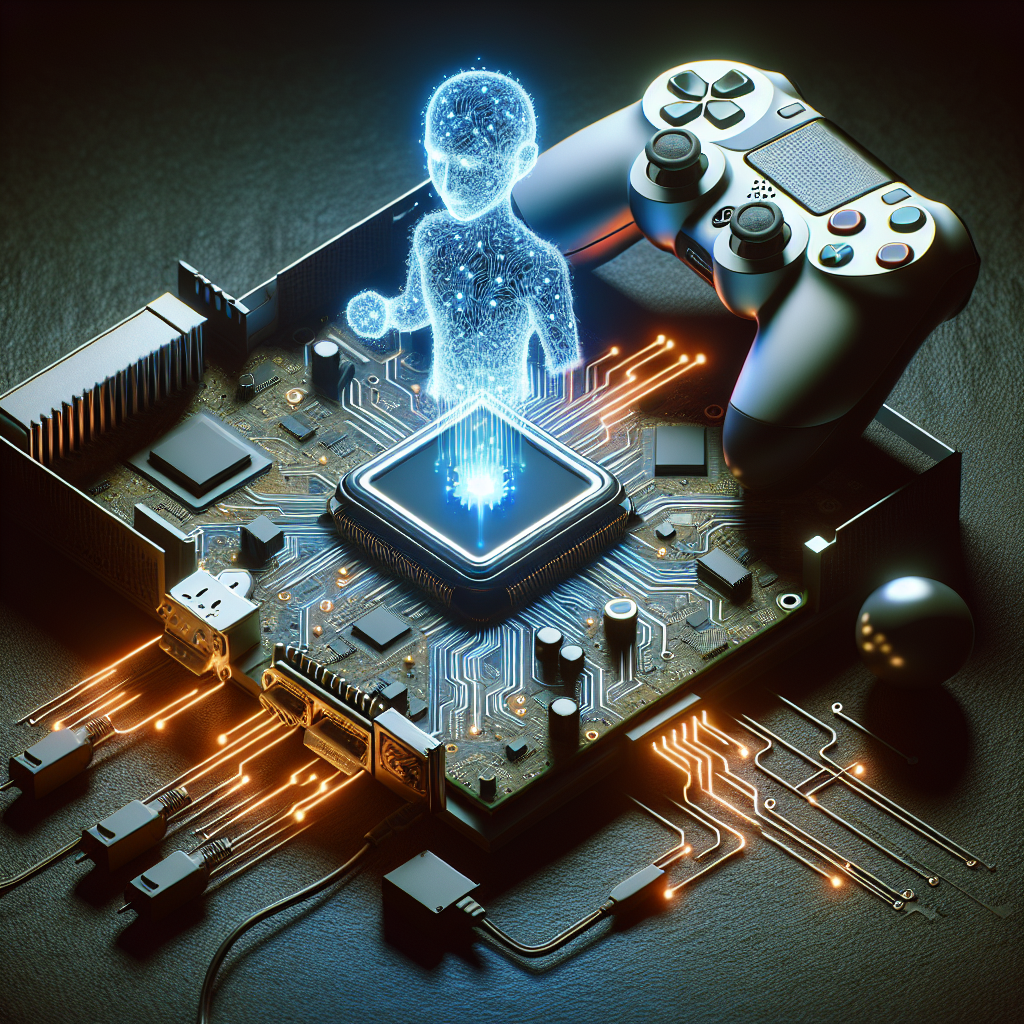Artificial Intelligence (AI) is revolutionizing the gaming industry, transforming the way games are developed, played, and experienced. AI platforms are increasingly being used to enhance gameplay, improve player engagement, and create more immersive gaming experiences. In this article, we will explore the use of AI platforms in gaming, discussing how they are being utilized and the potential impact they have on the future of gaming.
AI platforms in gaming are designed to analyze player behavior, adapt to individual preferences, and provide personalized experiences. These platforms use machine learning algorithms to learn from player interactions and make real-time decisions to enhance gameplay. By analyzing massive amounts of data, AI platforms can predict player behavior, optimize game mechanics, and create dynamic and challenging gameplay experiences.
One of the key areas where AI platforms are making a significant impact is in game development. Developers are using AI to streamline the development process, automate tasks, and create more sophisticated game worlds. AI platforms can generate realistic environments, characters, and animations, reducing the time and resources required to create high-quality games. This allows developers to focus on creating innovative gameplay mechanics and engaging storylines, rather than spending time on repetitive tasks.
AI platforms are also being used to enhance player engagement and retention. By analyzing player data, AI platforms can identify patterns and trends in player behavior, allowing developers to create personalized experiences that keep players coming back for more. For example, AI platforms can recommend in-game purchases based on player preferences, suggest new content or challenges, and adapt difficulty levels to match individual skill levels. This not only keeps players engaged but also helps developers maximize revenue and increase player loyalty.
Another area where AI platforms are being used in gaming is in player support and customer service. AI-powered chatbots and virtual assistants can provide players with real-time assistance, answer questions, and offer personalized recommendations. These AI platforms can also analyze player feedback and sentiment to identify issues, trends, and opportunities for improvement. This allows developers to quickly address player concerns, improve game features, and enhance the overall gaming experience.
In addition to enhancing gameplay and player engagement, AI platforms are also being used to improve game security and prevent cheating. AI algorithms can detect suspicious behavior, identify unauthorized modifications, and enforce fair play rules. This helps create a level playing field for all players and ensures a safe and secure gaming environment.
Overall, the use of AI platforms in gaming is transforming the industry, enabling developers to create more immersive, personalized, and engaging experiences for players. As AI technology continues to evolve, we can expect to see even more innovative applications of AI in gaming, such as virtual reality integration, voice recognition, and natural language processing. The future of gaming is AI-driven, and the possibilities are endless.
FAQs:
1. What are some examples of AI platforms used in gaming?
– Some examples of AI platforms used in gaming include Unity ML-Agents, Unreal Engine AI, IBM Watson, and Google Cloud AI. These platforms offer a range of AI tools and services that developers can use to enhance gameplay, improve player engagement, and create more immersive gaming experiences.
2. How does AI enhance gameplay in gaming?
– AI enhances gameplay in gaming by analyzing player behavior, adapting to individual preferences, and providing personalized experiences. AI platforms can predict player behavior, optimize game mechanics, and create dynamic and challenging gameplay experiences. This leads to more engaging and immersive gaming experiences for players.
3. How is AI used in game development?
– AI is used in game development to streamline the development process, automate tasks, and create more sophisticated game worlds. AI platforms can generate realistic environments, characters, and animations, reducing the time and resources required to create high-quality games. This allows developers to focus on creating innovative gameplay mechanics and engaging storylines.
4. How does AI improve player engagement and retention in gaming?
– AI improves player engagement and retention in gaming by analyzing player data, identifying patterns and trends in player behavior, and creating personalized experiences. AI platforms can recommend in-game purchases, suggest new content or challenges, and adapt difficulty levels to match individual skill levels. This keeps players engaged and coming back for more.
5. How does AI help prevent cheating in gaming?
– AI helps prevent cheating in gaming by detecting suspicious behavior, identifying unauthorized modifications, and enforcing fair play rules. AI algorithms can analyze player data and gameplay patterns to detect cheating and ensure a level playing field for all players. This helps create a safe and secure gaming environment for everyone.
In conclusion, AI platforms are transforming the gaming industry, offering developers new tools and capabilities to create more immersive, engaging, and personalized gaming experiences. As AI technology continues to evolve, we can expect to see even more innovative applications of AI in gaming, shaping the future of the industry for years to come.

